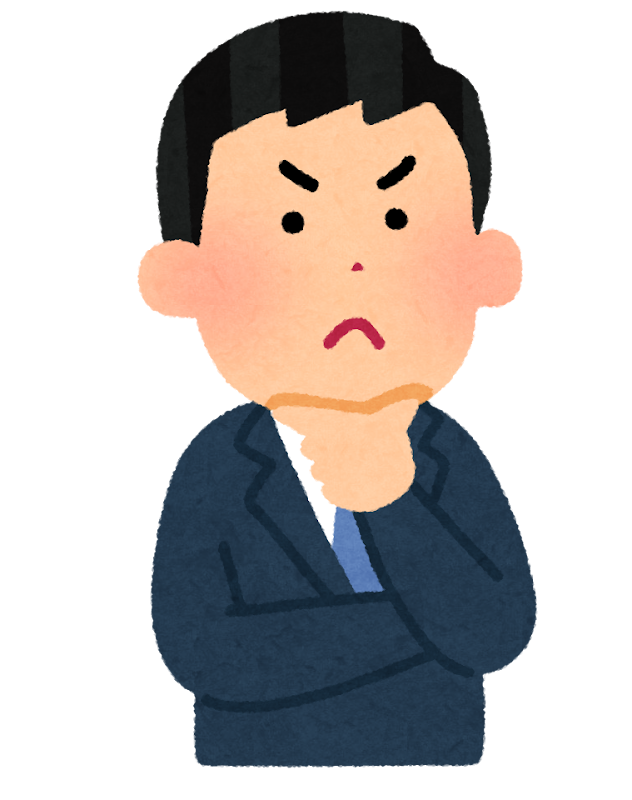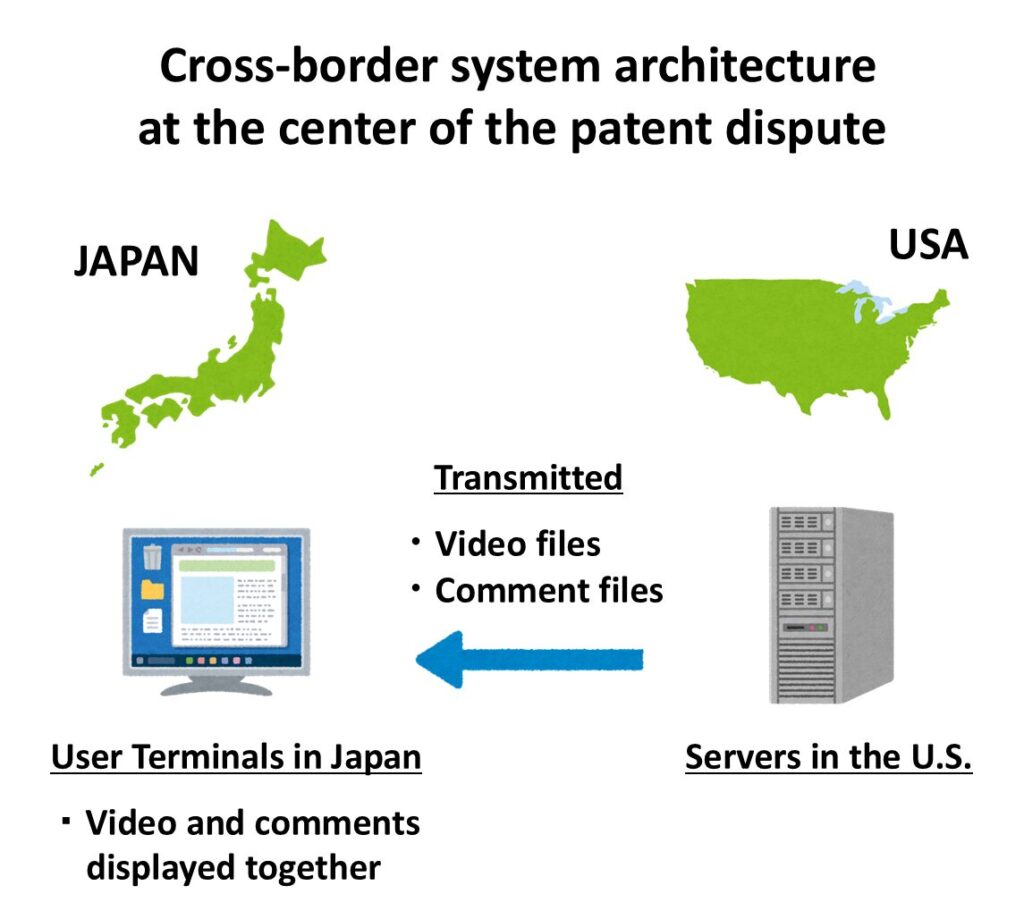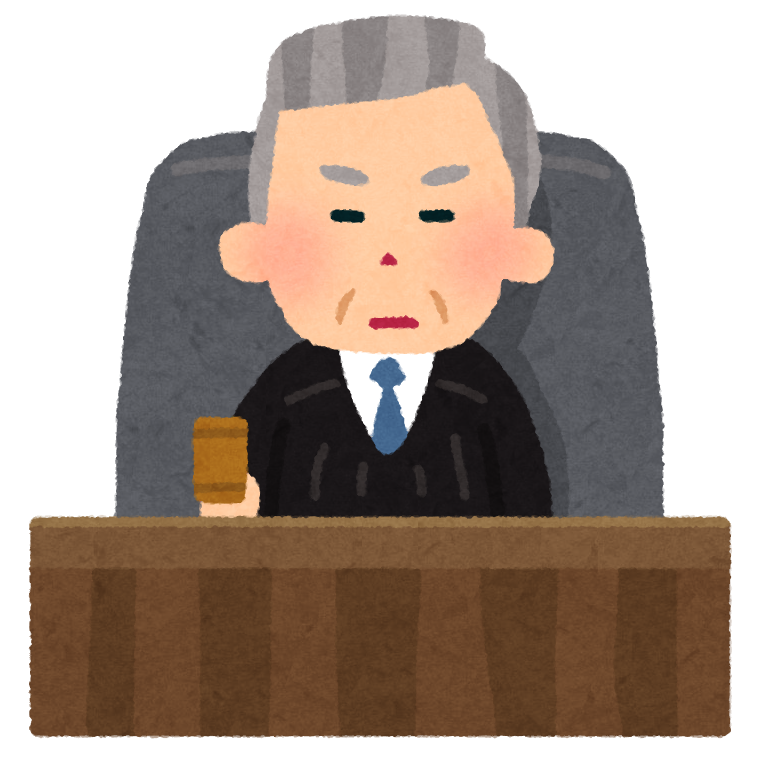Overview
This case addresses whether a service that uses servers located outside Japan can still infringe a Japanese patent. The Intellectual Property High Court ruled that if the essential functions of the patented invention are completed on user devices within Japan, infringement can be recognized under Japanese law. The judgment is a significant development for cross-border digital services.
Parties

Appellant (Plaintiff in the court of first instance, patent holder):
A Japanese corporation engaged in the planning, development, manufacture, sale, and rental of computer-based network systems.

Appellees (Defendants in the court of first instance):
- One is a U.S.-based corporation that operates blogging and video distribution platforms on the internet.
- The other is a Japanese corporation that provides various internet-based information services.
Legal Issue
The core issue was whether “production” of a patented system had occurred in Japan, as defined under Japan’s Patent Act. Although the defendant’s servers were located in the U.S., the service was executed on user terminals in Japan. The court had to determine whether this domestic use was enough to constitute patent infringement.

This diagram illustrates how video and comment data were delivered from a U.S.-based server to user terminals in Japan—raising the legal question of whether “production” under Japanese patent law occurs domestically when key functionalities are realized on the user side.
Court’s Ruling

The court found that the servers and Japanese user devices functioned together as one system. Because all claim elements of the patent were fulfilled on user terminals in Japan—such as the display of moving comments over videos—the court concluded that the act of “production” occurred domestically. Therefore, patent infringement was established in Japan, despite the infrastructure being located abroad.
Practical Implications
This ruling is particularly important for companies offering cloud-based or distributed services. It confirms that even if system components are located overseas, providing patented functionality to users in Japan can trigger liability.
Foreign companies should not assume that hosting servers abroad shields them from Japanese patent law. Instead, they should carefully assess whether any part of their service completes key patent claim elements within Japan.
Author’s Note
The decision reflects a modern, functional approach to patent enforcement, adapting to today’s reality of global, network-based services. It moves beyond formal territorial boundaries and focuses on where patented inventions are effectively realized. As similar cases are likely to increase, this judgment offers valuable guidance for future litigation and risk management strategies.
Case Information
- Court: Intellectual Property High Court of Japan
- Case No.: 2022 (Ne) 10046
- Judgment Date: May 26, 2023
- Case Title: Patent Infringement Appeal
- Patent No.: JP 6526304 (“Comment Display System”)
- Japanese-language judgment text: Link to the full decision (PDF)
